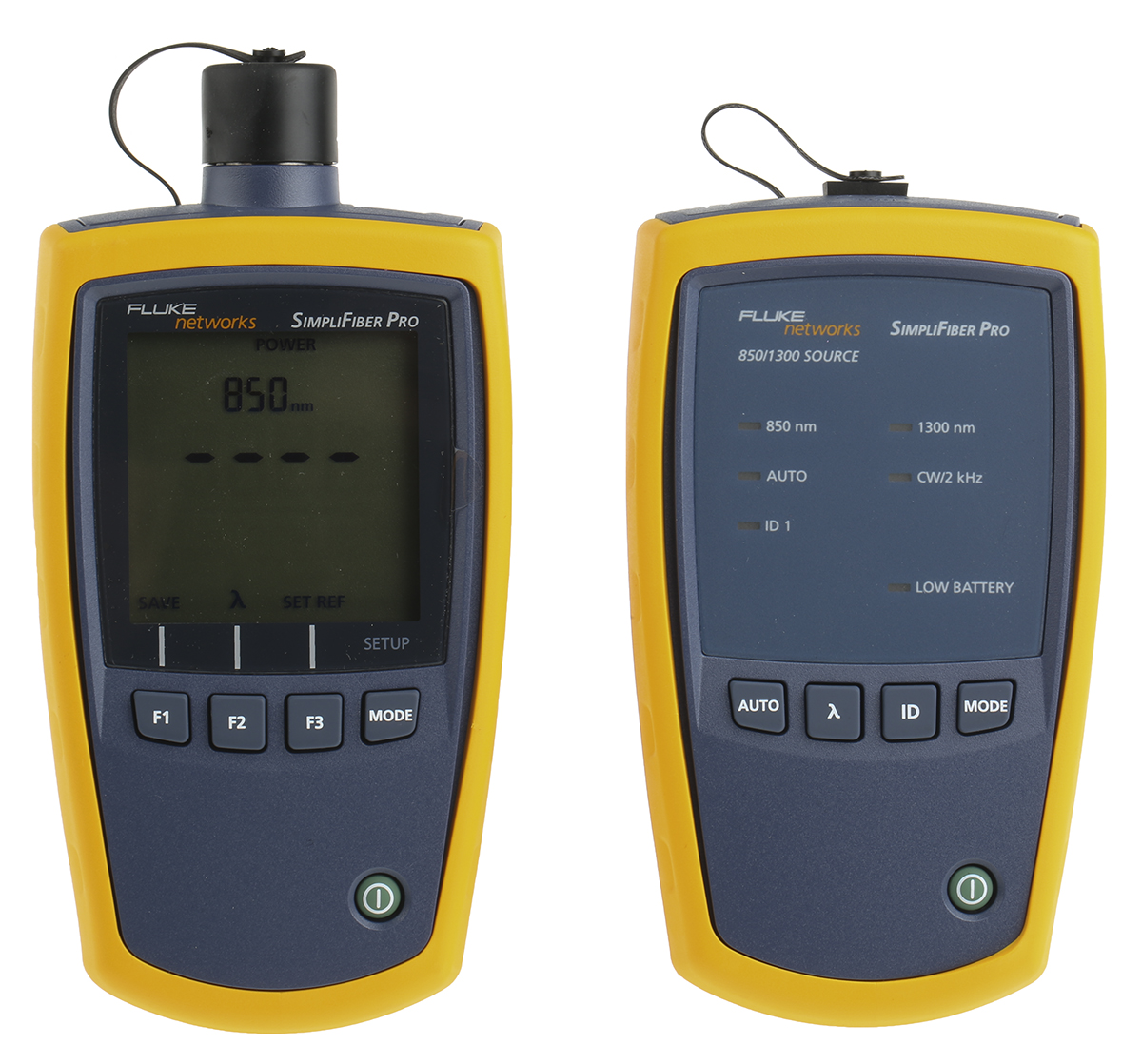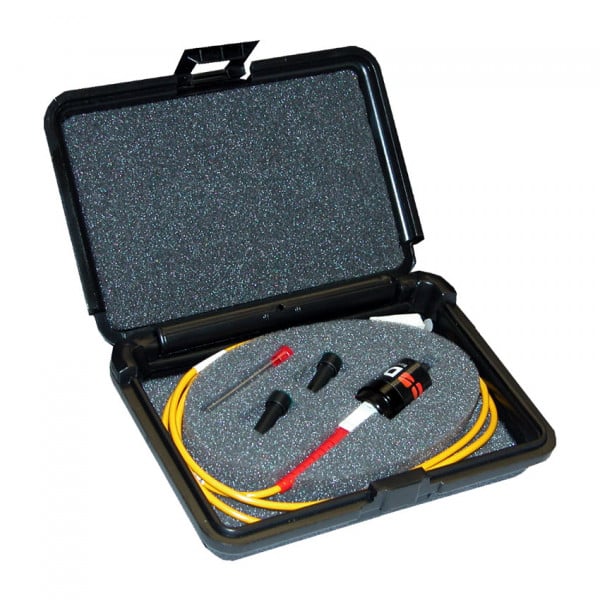Expert Tips for maintaining accuracy with your optical fibre diameter analyzer
Wiki Article
A Comprehensive Overview to Optical Measurement System for Fiber Analysis
When it involves fiber analysis, recognizing optical measurement systems is important for examining performance and ensuring quality. You'll discover crucial techniques like interferometry and spectroscopy, which help you gauge vital criteria. However there's more to it than simply these approaches; understanding attenuation measurement methods can greatly influence your network's performance. As you browse via this overview, you'll discover insights that might transform your method to optical fiber.Understanding Optical Measurement Equipments
When you explore optical measurement systems, you'll discover they're essential for evaluating fibers with precision. These systems utilize light to examine numerous features of fibers, including diameter, refractive index, and uniformity. By using techniques like interferometry and spectroscopy, you can acquire useful understandings into the fiber's properties.You'll locate that these systems are designed to reduce errors and enhance precision, ensuring trustworthy information for your analysis. Different setups, such as single-mode and multi-mode systems, deal with details fiber kinds, permitting you to pick the very best suitable for your needs.Moreover, the assimilation of advanced software devices assists you analyze the data effectively, making it much easier to identify any variances or issues. As you check out much deeper into these measurement systems, you'll appreciate exactly how they improve the analytical procedure and improve the total top quality of fiber production and testing.Key Specifications for Fiber Evaluation
Key parameters for fiber analysis play a necessary function in establishing the quality and efficiency of fiber optics. When you assess a fiber, you'll intend to concentrate on characteristics such as depletion, bandwidth, and modal diffusion. Attenuation determines the loss of signal toughness as light travels through the fiber. A lower depletion worth suggests far better quality and longer transmission distances - fibre testing equipment.Bandwidth refers to the data-carrying capacity of the fiber and is essential for high-speed interaction. You'll need to analyze the transmission capacity to ensure it satisfies your application requirements. Modal diffusion, which occurs from the various speeds at which light trips through numerous modes in multimode fibers, affects signal clarityTechniques for Depletion Measurement

Transmission capacity and Its Effect On Efficiency
Understanding bandwidth is crucial for maximizing fiber performance, as it directly influences the amount of information that can be sent over a network. Greater bandwidth suggests you can send out more details simultaneously, enabling faster communication and better total performance. When you're collaborating with optical fibers, it's essential to take into consideration how data transfer communicates with fiber features, such as core size and material properties.If the data transfer is limited, you might experience information loss or slower speeds, affecting your applications. Additionally, various kinds of fibers can sustain varying data transfer degrees, so it is very important to choose the ideal fiber for your certain needs.You must also bear in mind that environmental variables, like temperature and external disturbance, can impact transmission capacity. By comprehending these aspects, you can make educated decisions to boost your fiber optic systems, making certain trustworthy and efficient data transmission.Refractive Index Measurement Approaches

Total Inner Reflection
Overall interior reflection (TIR) acts as a basic principle for determining the refractive index of fibers. When light travels from a denser tool to a much less thick one, it can only be fully reflected if the angle of incidence surpasses a particular threshold, called the critical angle. This phenomenon enables you to figure out the refractive index by assessing the angles at which light reflects or refracts. By utilizing a configuration that routes light into a fiber and determines the resulting angles, you can calculate the refractive index accurately. Understanding TIR not only enhances your fiber analysis however likewise improves the design and efficiency of optical systems. So, leveraging TIR can cause much more reliable fiber-based applications.Interferometric Strategies
Structure on the concepts of total interior reflection, interferometric strategies supply a powerful methods for measuring the refractive index of fibers with high accuracy. These techniques manipulate the disturbance patterns developed when beams split and recombine after traveling different courses. You can utilize configurations like the Michelson or Mach-Zehnder interferometer to examine phase shifts brought on by adjustments in refractive index. By carefully adjusting your system and assessing the resulting edges, you can determine the refractive index with amazing precision. It's critical to keep stable environmental problems to decrease errors. With these techniques, you'll improve your understanding of fiber properties, bring about much better performance in various applications, from telecoms to sensor technology.Modal Diffusion and Its Importance
Modal diffusion describes the dispersing of light pulses as they travel with a fiber, which can impact the total performance of the system. You'll see that this phenomenon can result in signal distortion, impacting data transmission rates and high quality. Comprehending its relevance is important for maximizing fiber optic designs.Meaning of Modal Dispersion
In fiber optics communications, modal diffusion plays a substantial function in figuring out signal top quality and transmission speed. It occurs when various light modes take a trip at varying rates through the fiber. Given that each setting has distinct courses and qualities, they can come to the getting end at various times. This time around distinction can cause signal spreading and distortion, which can degrade the total efficiency of the communication system. You may encounter modal dispersion primarily in multimode fibers, where the several paths of light intensify the concern. Understanding modal dispersion is necessary for optimizing fiber designs and making sure that your communication systems operate successfully, preserving the stability of the transmitted signals over longer ranges.Effects on Fiber Performance
Understanding modal dispersion assists highlight its results on fiber efficiency. This phenomenon happens when different modes of light traveling at differing speeds within the fiber, causing signify dispersing over time. As you analyze optical fibers, you'll observe that boosted modal dispersion can substantially weaken signal high quality, leading to lowered data transfer and longer transmission distances. In practical terms, this means your information can get here altered or delayed, affecting overall interaction effectiveness. To mitigate these results, you might take into consideration making use of single-mode fibers, which lessen modal dispersion. By selecting the appropriate fiber kind and understanding exactly how modal diffusion influences performance, you can boost transmission quality and warranty dependable data transfer in your optical dimension systems.Tools and Technologies for Optical Measurements
When it pertains to optical dimensions, numerous cutting-edge devices and technologies go to your disposal to boost fiber evaluation. You'll find fiber optic testers, which assess signal quality and performance, crucial for keeping perfect network efficiency. Optical time-domain reflectometers (OTDRs) are essential for finding faults and measuring loss over distances, offering in-depth understandings right into fiber integrity. Furthermore, spectrometers can evaluate light ranges, assisting you determine product homes and composition.Don' t neglect the value of imaging systems, like digital microscopes, that enable you to visually examine fiber surfaces for issues. Additionally, think about using polarization analyzers to measure tension and strain in fibers, which is crucial for recognizing their habits under different problems. By leveraging these tools and modern technologies, you can considerably boost your fiber evaluation procedures, guaranteeing dependability and high efficiency in your optical networks.Regularly Asked Inquiries
What Are the Prices Connected With Optical Measurement Systems?
The expenses associated with optical dimension systems can differ considerably. You'll need to review tools prices, maintenance costs, software licenses, and potential training expenses. Budgeting meticulously will help you avoid unanticipated economic obstacles down the line.
Exactly How Usually Should Fiber Evaluation Be Carried Out?
You ought to perform fiber analysis on a regular basis, normally every six months or after considerable modifications in the environment (optical measurement system). This guarantees excellent performance and helps identify prospective problems prior to they impact your system's performance and dependabilityCan Optical Measurement Systems Be Calibrated at Home?
Yes, you can adjust optical dimension systems in the house, yet it calls for precision. Ensure you adhere to the maker's standards, use ideal calibration criteria, and confirm your outcomes to guarantee precision in your measurements.
What Industries Commonly Use Optical Measurement Equipments?
You'll find optical measurement systems widely made use of in industries such as telecoms, production, health care, and research study. They're vital for quality control, fiber evaluation, and making certain specific dimensions in numerous applications, boosting efficiency and precision throughout fields.Exist Any Kind Of Safety Interest In Optical Measurement Solutions?
Yes, there are safety problems with optical dimension systems. You ought to constantly put on safety eyewear to shield your eyes from extreme light optical fibre diameter analyzer resources and guarantee proper training to take care of devices safely and prevent mishaps.Report this wiki page